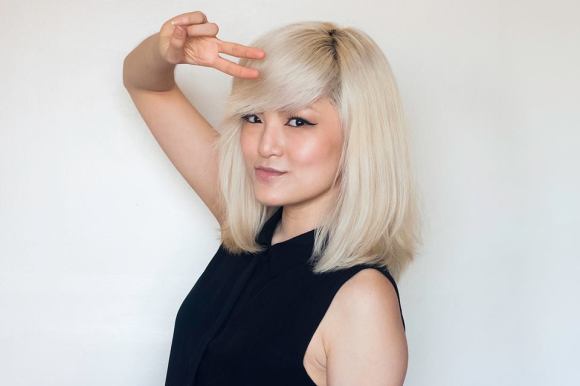
We here at RocketNews24 had a blast at last month’s E3 video game conference. Without a doubt, one of the most eagerly anticipated events of the whole conference was the Super Smash Bros. Wii U Invitational Tournament. Hundreds of fans showed up to cheer on the competitors in person, while thousands more tuned in to watch the live stream of the event via Twitch.
Our reporter recently caught up with Lilian Chen, aka Milktea, one of only 16 players from around the world who were specially invited to compete in the event. In addition to her history of playing competitive Smash, Milktea has remained an active part of the gaming community for the past eight years, most recently sharing her personal reflections as a female gamer in a series of online posts.
Join us as we take a deeper look at the world of gaming from a female perspective, including some of Milktea’s thoughts on the issue and the ongoing work of another advocate, the creative team of She Got Game.
Last month we featured an article by our partner site which highlighted the lack of female speakers at the recent E3 conference. Despite the high number of women who play video games, the underrepresentation of female voices at press events and various media outlets related to gaming seems to be an ongoing trend in America. The article provoked some strong reactions in the comments section, so we were interested to look a bit more in-depth into the topic of the treatment of female gamers in general.
Enter Lilian Chen, otherwise known by her handle Milktea, a semi-retired competitive Smash player who hails from Connecticut in the US. Milktea grew up playing Smash for fun, and her friends eventually encouraged her to participate in organized competitions. Her specialty is the Melee incarnation of the series, for which she has won several tournaments as a doubles player. You can also see video footage of a young Milktea in last year’s Super Smash Bros. documentary (she appears in episodes 5 and 7 of the series). While Milktea has not been active in the competitive scene for several years now, she continues to attend conferences around the country and enjoys meeting up with old friends from the gaming community.
▼By the way, her favorite video game is the Phoenix Wright: Ace Attorney series.
Early last month Milktea was one of only 16 players from around the world who were invited to participate in this year’s E3 Super Smash Bros. Wii U Invitational Tournament. She took a break from her job as a graphic designer for TED in New York City to hop on a plane for LA, where she garnered more than a few fans for her brilliant gameplay as Pikachu in the quarterfinals.
▼Milktea’s official E3 Smash Bros. Invitational profile
▼You can watch Milktea play in match 4 of the Super Smash Bros. Invitational (her segment begins at 16:54)
Although Milktea had plenty of fun and met lifelong friends during her time as a competitive Smash player, both academic obligations and some mixed experiences caused her to eventually step back from the scene. One of the major factors that influenced this decision proved to be the pervasive sexist behaviors (both intentional and unintentional) that she continuously encountered within the Smash community.
Deciding to voice these frustrations for others to read, Milktea compiled some of her thoughts about being a woman in the Smash community in an online blog she called “Ramblings of a retired gamer,” which soon sparked a huge reader response. At the moment, the blog has only three posts, but each one of them is chock-full of her personal experiences and observations.
And wait–before some of our more skeptical readers get their panties in a bunch, you should note that Milktea takes an extremely level, diplomatic stance on the controversial issue of sexism in gaming. She does not point fingers at people, and she is the first to acknowledge that women, as well as men, have perpetuated some of the attitudes out there:
“As negative as the issue of gender roles in the SSBM community is, I would like to acknowledge that I have forged invaluable friendships and irreplaceable memories from the past seven years of being a part of the community. I also had (and have) extremely supportive friends and mentors who did not fall into the vast majority described above.
Before you roll your eyes, close the tab, and dismiss this as yet another article stereotyping male gamers as sexist, let us review one more aspect that is often overlooked. Many female players also perpetuate these sexist, disrespectful behaviors (just ask 17 year old Milktea). This post is not attempting to wage war against male players, or anyone at all. Pointing fingers only causes more defensive barriers to be erected, further inhibiting progress. It is absolutely critical to realize that reforming the competitive SSBM culture is a task that we will all need to tackle in unison.”
▼Milktea and the other competitors in her group at E3
Note: The following are only short excerpts from her posts designed to pique your interest– please read her FULL two (written) posts in their entirety BEFORE writing your thoughts in the comments section at the bottom of this page.
From her first post, “Growing up in the Super Smash Brothers Melee Community as a Girl”:
“I joined the community in 2005, and since then, I noticed that my dating life and physical appearance are discussed far more than my actual ability to play the game. While I have dealt with misogyny quite a bit in the SSBM community, it is not the best word to describe my overall experience. Sexism appears in multiple forms and it is not always in the form of hatred or negativity. I was viewed as a gift from the nerd deities for being a girl who enjoyed video games at a competitive level, but then labeled a “whore” for dating people with common interests.
From 2006-2008, I was on par with every other average, competitive male in the community. While juggling school and devoting maybe less than half the amount of time that my friends did, I was able to hold my ground and consistently place decently in tournaments. I can remember spending hours watching matches online, taking notes on match ups, and practicing tech skill in my room alone. While I never placed top five or anything close at my prime (in singles, at least), I also never placed last in tournaments. In teams, my partner at the time and I had some solid wins, often placing better than when he teamed with people of higher skill level than me.
What was the community’s take from all of the above? Nothing. I was either A’s girlfriend, or B’s girlfriend, despite playing competitively before I ever met A or B. Random guys I encountered would sandbag me, regardless of the constant practice I got against opponents far better than them. Any successful team accomplishments were attributed to my partner almost instantaneously. People questioned why I was ever placed in my state’s power rankings. These doubts did not only come from random people. I have close friends that have said extremely offensive things about my playing the game, because yet again, my ability to play was never considered, just the fact that I am female.”
▼Engrossed in gameplay
From her second post, “Why awareness in the Super Smash Bros. Melee community is vital” (in which she also debunks several girl-gamer myths):
“This is where awareness becomes vital. The spreading of knowledge regarding the treatment of women in the SSBM community holds the power to nurture our scene into one that is welcoming for all. While there are certainly misogynistic jerks scattered about, a large part of the community is likely perpetuating disrespectful behaviors unknowingly. Not every person who has ever offended a female player does it intentionally, torches ablaze, pitchforks out, mentally chanting, “I’M BEING A SEXIST JERK RIGHT NOW AND IT FEELS SPLENDID!” The fact that awareness is a constant work in progress is one that we forget, but it is so integral for change. Awareness is not a magical cure that will produce results overnight. It takes time, but with time comes gradual improvement.”
Milktea sums up her overall goal as one of MUTUAL RESPECT between men and women gamers:
“Please do not interpret this post as, “BE EXTRA NICE TO THE LADIES WITH CHERRIES ON TOP.” Many articles on this subject get misconstrued for demanding that everyone be nicer to female gamers simply for the sake of being nicer. That would contradict the very idea of equality. I cannot be more blunt: treat female Smash players with the same amount of respect you would treat male ones. Do not treat them like mythical creatures. Do not treat them like physical manifestations of our community’s problems either.”
▼Let’s go, Pikachu!
As mentioned previously, a recent article which also touched on sexism in the gaming industry provoked some strong opinions from readers. We wanted to hear Milktea’s perspective on this topic, and she kindly agreed to share some of her thoughts with us!
RocketNews24: Thank you for taking the time to chat with us. Could you please elaborate a bit more on the “reverse-sexism” mentioned in one of your posts? In particular, what kinds of things should both male and female gamers try to be more aware of so that they don’t unintentionally perpetuate a negative treatment of women?
Milktea: A behavior that immediately comes to mind is when male players deliberately play at a lower skill level against female players, essentially “going easier” against their female opponents in hopes of giving them a better chance of winning. Another example is assuming that female players understand nothing about the game, which triggers a lot of “coddling” and unnecessary explanations surrounding game mechanics. These are just a few of the many examples.
The reason I clearly call these behaviors “reverse-sexism” is due to the immediate nature of the gestures. I believe that male players do not realize these actions are subtly sexist and extremely condescending. I genuinely believe that they are honestly trying to be helpful! Nevertheless, these types of actions reinforce the idea that female players are not the equals of male players, so it is important to avoid them!
RocketNews24: What would you say to people who dismiss the topic of sexism in gaming as being a case of “female privilege”?
Milktea: This is a tough question. There is not really a short way to respond to someone who immediately dismisses the issue of sexism in gaming for “female privilege”. A lot of empathy is needed to even begin to broach the topic. Benevolent-sexism plays a huge role in this conversation but you will most likely be brushed off as a crazy feminist the moment you drop this term. All I can really say is there is a lot more to be treating someone as an equal than just being nice!
We all got souvenirs to take home: Smash ROBES. Repping Smash community for life! :D #e3 #smashbros #e3smash pic.twitter.com/eVXc4wra65
— Lil | Milktea (on Threads) (@_lilchen) June 11, 2014
RocketNews24: One topic that came up previously was how some women have stopped using microphones to play online multiplayer games because their voices give away their gender. Have you ever personally experienced harassment while using a microphone, or experienced a similar situation?
Milktea: This question is interesting because I always thought that I was more outspoken than most and was capable of ignoring most harassment. In hindsight, I’ve come to realize that 90 percent of the time, I still opt to stay silent in online chatrooms that reveal my identity in fear of getting harassed. Anywhere there is video of me speaking or even playing Smash Brothers, you will either find comments flaming me, discussing my physical appearance, and even slut-shaming.
RocketNews24: Lastly, you seem big on the distinction between competitive gaming and casual gaming, and the idea that a person doesn’t need to be an expert player to be considered a gamer (“The idea that skill level at Smash Bros. is the best way to measure someone’s worth to our community is a dangerous belief, not only to female gamers, but male ones as well”). Please touch on this idea.
Milktea: The division isn’t so much about competitive versus casual as it sounds! My concern was more directed at people quantifying how “valuable” of a gamer is to their community solely based on their skill level at said game. While skill level is obviously one of the foundational elements of a competitive scene, there are many other aspects that should not be overlooked. In addition to elite professional players, a community is still comprised of personalities, commentators, tournament hosts, and so forth.
RocketNews24: Thank you!
▼Milktea’s recent vlog sharing behind the scenes info at the E3 Smash Invitational
Shifting gears a bit, we’d now like to introduce you to an ongoing documentary exploration of women and gaming known as She Got Game. The creative combo of host Cailleah Scott-Games and “Tech Wizard” Dr. S2 began production on the project in 2013 in Toronto, Canada. Their main goal is summed up concisely in this quote from She Got Game’s official Facebook page: “An exploration of women in the gaming world through the eyes of a young woman interviewing developers, gamers, cosplayers and more!” Specifically, She Got Game strives to be an outlet for underheard voices in the gaming community and to clear up misconceptions about female gamers through a series of video interviews and event coverages, as well as weekly official blog updates every Thursday on a range of topics.
▼Host Cailleah Scott-Grimes, who prior to embarking on She Got Game spent two years on the JET Program in Yamagata City, Japan
Cailleah was also kind enough to provide RocketNews24 with a brief update on the current status of She Got Game:
“The momentum of this project has really picked up since the Kickstarter was funded. It seems like every time I turn around I’m introduced to another amazing woman who I want to bring on board! This is why we’re slowly expanding She Got Game to include other media. For women and girls who want to get involved but who are a little out of reach, we’ve got an official blog going where we invite new guests to post every week. We’re also in the process of developing a photography series featuring gamers, developers and cosplayers.
‘Tis the season for cons and expos, so it’ll be a busy summer. Plans are in the works to head back to Montreal to talk with some of the top ladies at Ubisoft AND I was going to keep this delicious secret, but why hold back? As a lot of our followers know, I used to live in Japan and I’m actually going back this summer to shoot for the doc! I’m in the process of lining up interviews as we speak. I couldn’t be more excited to include Japan in the project since it’s the motherland of gaming and a place that’s very close to my heart.”
In other words, there are lots of fun times ahead! Here are a couple of videos to give you a feel for the project while we’re eagerly anticipating the documentary’s footage from Japan:
▼She Got Game: A Little Retrospective
▼One of She Got Game‘s recent videos:
We should also mention that in a brilliant twist of fate, She Got Game even caught up with Milktea at an event in New York City this past spring. You can check out the full interview below!
She Got Game x Milktea Interview Part 1:
(Milktea talks about growing up and playing video games in the back of her family’s restaurant, her entry into the competitive Smash world, making lifelong friends, the start of her efforts to advocate for better treatment of women in the community, her two blog posts, and the social dynamics of competitive and casual gaming)
She Got Game x Milktea Interview Part 2:
(Milktea further comments on where she thinks future efforts should go, how best to approach the issue, more thoughts on the Smash community, and the role of gaming in her life from now on)
Well, wonderful readers, thank you for sticking with this one to the end. We hope that this piece has gotten you to think about women in the gaming community in a new light. We welcome your comments in the section below, but please remember to show respect to the opinions of your fellow readers.
RocketNews24 sends a super big thank you to Milktea and She Got Game’s Cailleah for taking time out of their busy schedules to participate in this article. We wish them the best of luck in their future endeavors!
Sources: Milktea (Lilian Chen): Twitter, Tumblr; She Got Game: Official site, Facebook, Twitter, Blog, YouTube channel
Images: Facebook: Super Smash Bros., She Got Game, Wikipedia, RocketNews24 (via Twitch live E3 stream)

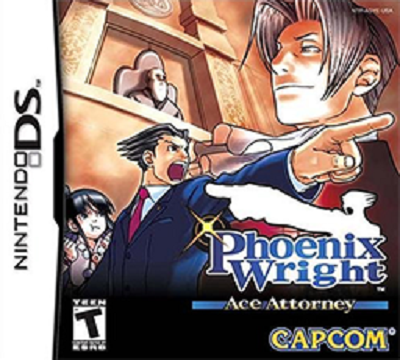
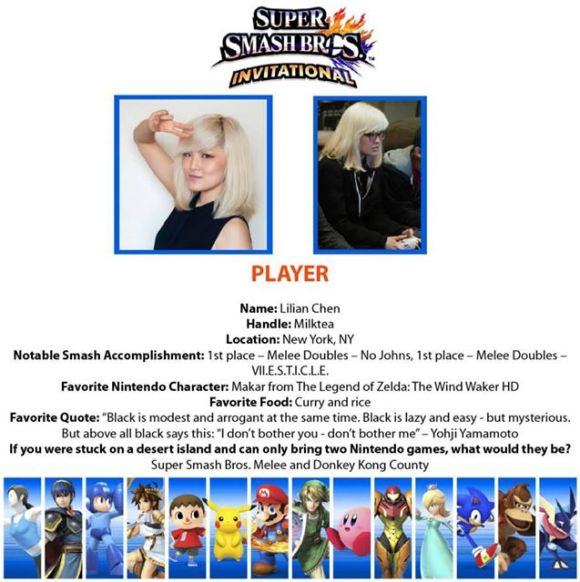
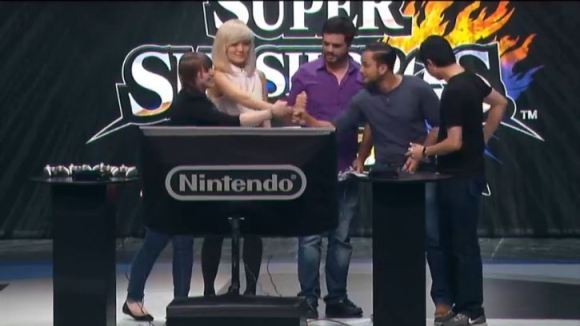
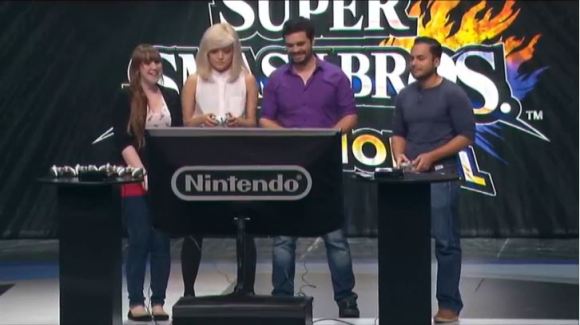
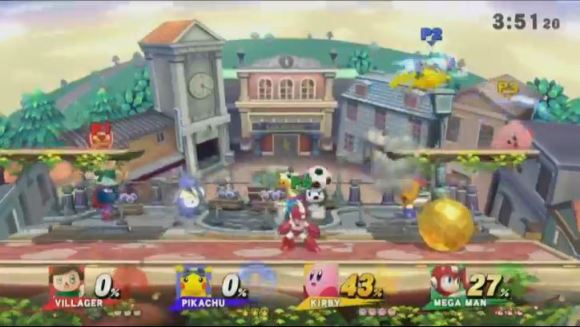
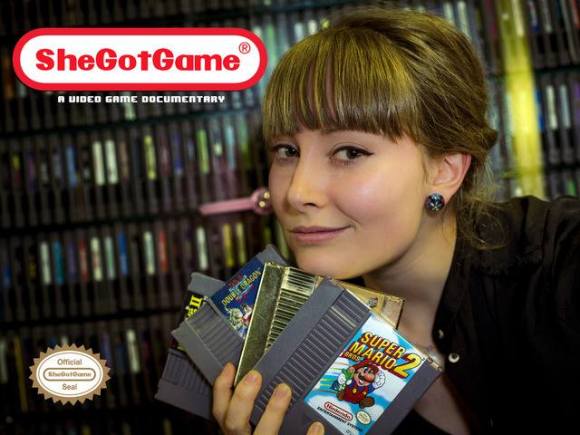
 Large-breasted female fighting game character barred from Nintendo’s Super Smash Bros. series
Large-breasted female fighting game character barred from Nintendo’s Super Smash Bros. series This Smash Bros.-loving cat from Japan is the world’s most adorable gamer【Videos】
This Smash Bros.-loving cat from Japan is the world’s most adorable gamer【Videos】 Smash Bros. director Sakurai says he’s not retiring from video games…”probably”
Smash Bros. director Sakurai says he’s not retiring from video games…”probably” World’s #1 Smash Bros. player takes on random kid in Japan’s Narita Airport
World’s #1 Smash Bros. player takes on random kid in Japan’s Narita Airport Japanese company will send instructors to your home to teach you how to be good at video games
Japanese company will send instructors to your home to teach you how to be good at video games Which convenience store onigiri rice balls are the most popular? Survey reveals surprising results
Which convenience store onigiri rice balls are the most popular? Survey reveals surprising results Japan Extreme Budget Travel! A trip from Tokyo to Izumo for just 30,000 yen [Part 2]
Japan Extreme Budget Travel! A trip from Tokyo to Izumo for just 30,000 yen [Part 2] Tokyo street sweets: The must-snack treats of Nakano’s Refutei
Tokyo street sweets: The must-snack treats of Nakano’s Refutei Japanese restaurant chain serves Dragon Ball donuts and Senzu Beans this spring
Japanese restaurant chain serves Dragon Ball donuts and Senzu Beans this spring 10 awesome ice creams available from convenience stores in Japan
10 awesome ice creams available from convenience stores in Japan New Uniqlo x Pokémon collection coming to Japan this month!
New Uniqlo x Pokémon collection coming to Japan this month! This is Japan’s only shrine with a Shinkansen tunnel underneath it
This is Japan’s only shrine with a Shinkansen tunnel underneath it 7-Eleven Japan’s sakura sweets season is underway right now!
7-Eleven Japan’s sakura sweets season is underway right now! Starbucks Japan releases first-ever Hinamatsuri Girls’ Day Frappuccino
Starbucks Japan releases first-ever Hinamatsuri Girls’ Day Frappuccino Can you eat lunch in Tokyo for less than 500 yen?
Can you eat lunch in Tokyo for less than 500 yen? Highest Starbucks in Japan set to open this spring in the Tokyo sky
Highest Starbucks in Japan set to open this spring in the Tokyo sky The 10 most annoying things foreign tourists do on Japanese trains, according to locals
The 10 most annoying things foreign tourists do on Japanese trains, according to locals Tokyo Skytree turns pink for the cherry blossom season
Tokyo Skytree turns pink for the cherry blossom season Yakuzen ramen restaurant in Tokyo is very different to a yakuza ramen restaurant
Yakuzen ramen restaurant in Tokyo is very different to a yakuza ramen restaurant Shibuya Station’s Hachiko Gate and Yamanote Line stairway locations change next month
Shibuya Station’s Hachiko Gate and Yamanote Line stairway locations change next month Starbucks Japan releases new sakura goods and drinkware for cherry blossom season 2026
Starbucks Japan releases new sakura goods and drinkware for cherry blossom season 2026 Starbucks Japan adds new sakura Frappuccino and cherry blossom drinks to the menu
Starbucks Japan adds new sakura Frappuccino and cherry blossom drinks to the menu Japan Extreme Budget Travel! A trip from Tokyo to Izumo for just 30,000 yen [Part 1]
Japan Extreme Budget Travel! A trip from Tokyo to Izumo for just 30,000 yen [Part 1] Japan’s new “Cunte” contact lenses aren’t pronounced like you’re probably thinking they are
Japan’s new “Cunte” contact lenses aren’t pronounced like you’re probably thinking they are Japan’s newest Shinkansen has no seats…or passengers [Video]
Japan’s newest Shinkansen has no seats…or passengers [Video] Foreigners accounting for over 80 percent of off-course skiers needing rescue in Japan’s Hokkaido
Foreigners accounting for over 80 percent of off-course skiers needing rescue in Japan’s Hokkaido Super-salty pizza sends six kids to the hospital in Japan, linguistics blamed
Super-salty pizza sends six kids to the hospital in Japan, linguistics blamed Starbucks Japan unveils new sakura Frappuccino for cherry blossom season 2026
Starbucks Japan unveils new sakura Frappuccino for cherry blossom season 2026 Foreign tourists in Japan will get free Shinkansen tickets to promote regional tourism
Foreign tourists in Japan will get free Shinkansen tickets to promote regional tourism Take a trip to Japan’s Dododo Land, the most irritating place on Earth
Take a trip to Japan’s Dododo Land, the most irritating place on Earth Naruto and Converse team up for new line of shinobi sneakers[Photos]
Naruto and Converse team up for new line of shinobi sneakers[Photos] Is China’s don’t-go-to-Japan warning affecting the lines at a popular Tokyo gyukatsu restaurant?
Is China’s don’t-go-to-Japan warning affecting the lines at a popular Tokyo gyukatsu restaurant? Survey asks foreign tourists what bothered them in Japan, more than half gave same answer
Survey asks foreign tourists what bothered them in Japan, more than half gave same answer Japan’s human washing machines will go on sale to general public, demos to be held in Tokyo
Japan’s human washing machines will go on sale to general public, demos to be held in Tokyo Starbucks Japan releases new drinkware and goods for Valentine’s Day
Starbucks Japan releases new drinkware and goods for Valentine’s Day We deeply regret going into this tunnel on our walk in the mountains of Japan
We deeply regret going into this tunnel on our walk in the mountains of Japan Studio Ghibli releases Kodama forest spirits from Princess Mononoke to light up your home
Studio Ghibli releases Kodama forest spirits from Princess Mononoke to light up your home Major Japanese hotel chain says reservations via overseas booking sites may not be valid
Major Japanese hotel chain says reservations via overseas booking sites may not be valid Put sesame oil in your coffee? Japanese maker says it’s the best way to start your day【Taste test】
Put sesame oil in your coffee? Japanese maker says it’s the best way to start your day【Taste test】 No more using real katana for tourism activities, Japan’s National Police Agency says
No more using real katana for tourism activities, Japan’s National Police Agency says Nintendo’s two new Smash Bros games have one of the coolest trailers ever
Nintendo’s two new Smash Bros games have one of the coolest trailers ever Japanese figure skater Shoma Uno crushes pro gamer in Super Smash Bros. tournament【Video】
Japanese figure skater Shoma Uno crushes pro gamer in Super Smash Bros. tournament【Video】 Want to get better at Smash Bros.? Japanese player plans to open ‘Smash Bros. Prep School’
Want to get better at Smash Bros.? Japanese player plans to open ‘Smash Bros. Prep School’ Super Smash Bros. has pathetically small grand prize at Japan’s biggest fighting game tournament
Super Smash Bros. has pathetically small grand prize at Japan’s biggest fighting game tournament Immigration officer has surprising questions for Japanese pro Smash Bros. player traveling abroad
Immigration officer has surprising questions for Japanese pro Smash Bros. player traveling abroad Super Smash Bros. superfan shares shocking character tier list after thousands of hours of play
Super Smash Bros. superfan shares shocking character tier list after thousands of hours of play Animal Crossing’s Isabelle confirmed for Smash Brothers Ultimate, fan reactions confirmed loud
Animal Crossing’s Isabelle confirmed for Smash Brothers Ultimate, fan reactions confirmed loud Super Smash Bros. director admits “There are too many Fire Emblem characters”
Super Smash Bros. director admits “There are too many Fire Emblem characters” Fighting too hard? Super Smash Bros 3DS players in Japan are reporting broken slide pads
Fighting too hard? Super Smash Bros 3DS players in Japan are reporting broken slide pads Gamers in Japan find way to see up Princess Peach’s skirt within hours of Smash Brothers release
Gamers in Japan find way to see up Princess Peach’s skirt within hours of Smash Brothers release Busty ninja girl barred from Smash Bros. gets her own Tokyo pop-up store/merch line【Photos】
Busty ninja girl barred from Smash Bros. gets her own Tokyo pop-up store/merch line【Photos】 Play this Nintendo game with your partner before you decide to marry them, Japanese Twitter says
Play this Nintendo game with your partner before you decide to marry them, Japanese Twitter says Nintendo unveils new line of official amiibo diorama kits 【Photos】
Nintendo unveils new line of official amiibo diorama kits 【Photos】 Smash Bros. director Sakurai launches money-losing YouTube channel to talk about game design
Smash Bros. director Sakurai launches money-losing YouTube channel to talk about game design Japanese League of Legends first female champion is also an aspiring model
Japanese League of Legends first female champion is also an aspiring model